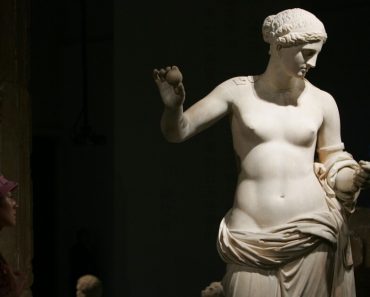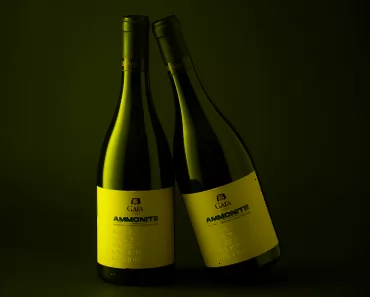Oslo: Panagiotis Pavlos, Correspondent – Hellas Journal
The Embassy of the Hellenic Republic in Oslo honored the National Day of Hellenism on the occasion of the 204th anniversary of the Greek Revolution in 1821 with a special celebration.
Many distinguished guests participated in a beautiful reception at the Ambassador’s Residence, where the Ambassador of Greece to Norway and Iceland, Anna Korka, warmly welcomed diplomats from several countries, academics, members of the Greek community in Oslo, as well as Norwegian friends of Greece.
After the singing of the National Anthems of Greece and Norway, Ambassador Korka referred in her ceremonial speech to the historical challenges Hellenism has faced in environments of uncertainty and instability, both endemic and often caused by foreign factors. She praised the preservation of the Greek language, Greek civilization and national identity during the Ottoman Empire, as well as the active faith of the Greeks in Democracy and Peace.
She underlined the continuous strengthening of the relations between Greece and Norway both within the framework of international organizations such as NATO and the European Economic Area and on the bilateral level. She highlighted the historical friendship between the two peoples the foundations of which go back far in time, when in the 4th century BC, the Greek explorer Pytheas from Marseille, a Greek colony established by Phocaeans in nowadays France in the 6th century BC, traveled to the shores of the land of the Vikings and Iceland, naming the Norwegian north “Thule”.
The Ambassador made a special reference to the presence of the Varangians in the Byzantine Empire and the Imperial Court, who, as it is well known, served as the emperor’s elite guard in Constantinople. Those who have visited the great City and the center of Christianity, Hagia Sophia, have seen in the galley of the Church, near by the famous mosaic of the Deêsis, the runic inscription carved into the marble attesting to the presence of the Vikings in the center of the Eastern Roman Empire: “Here was Halfdan”.
Ambassador Korka did not fail to mention the joint struggle of Greece and Norway against Nazism and Fascism, during World War II. Those who have studied the modern history of Norway also know that this vast Scandinavian land was the second country in Europe, after Greece, in terms of their strong resistance to the Nazi occupiers.
The Ambassador further referred to the numerous initiatives aiming at strengthening bilateral relations between Greece and Norway that have been launched during her tenure in the Norwegian capital so far, as well as the promising prospects. She praised the love for Greece and the devotion that distinguishes the Norwegians who visit our country every year.
In his response, the Norwegian Deputy Minister for Foreign Affairs, Eivind Van Petersson, warmly thanked Ambassador Korka, addressing the guests in Greek with “Chronia Polla, Hellenes!” The Minister emphasized the common bond that the sea ensures between the two countries, saying emphatically that “the sea does not separate us, but unites us”.
He referred to the financial support Norway provides to Greece through EEA Grants, which so far amounts 250 million euros, while he mentioned the impressive statistics of Norwegians visiting Greece, which, as he said, amount to 400.000 visitors annually. He did not fail to speak with words of praise and gratitude for the increasing number of Greeks who immigrate to Norway, who, as he uttered, “contribute to making Norway better and stronger”.
A special highlight of the reception event was the presence of the Norwegian choir “Arcadia”, which for over 30 years and thanks to its Greek conductor and composer, Marilena Zlatanou, has been the most significant cultural organization promoting Greece in Norway; its members are Norwegians who sing in Greek great classical Greek poetry and musical compositions. In its exceptional participation in the celebrations for the National Independence Day, the choir Arcadia first sang the hymn “Tê Hypermachô” and then presented selected musical works by Manos Hatzidakis and Mikis Theodorakis, as well as the ancient Greek hymn, the Epitaph of Seikilos, “῾Όσον ζῇς φαίνου”, which, as director Zlatanou explained, is the only fully preserved musical composition from Greek antiquity.
The reception was attended by, among others, heads of diplomatic missions in Norway, Ambassadors such as Argentina’s Claudio Giacomino, France’s Florence Robine, Portugal’s Pedro Pessoa e Costa, Serbia’s Dragan Petrović, Sweden’s Mikael Eriksson, as well as the popular from his successful and innovative tenure in Athens and Nicosia former Norwegian Ambassador to Greece and Cyprus Frode Overland Andersen, currently head of the Directorate for European Affairs and International Trade of the Norwegian Ministry of Foreign Affairs.
Among the distinguished guests were the former Director of the Norwegian Institute in Athens, emeritus professor of philology at the University of Oslo and prominent classicist Øivind Andersen, the professor of Ancient Greek Literature Silvio Bär, the Chair of the Parents Association of the Greek School in Oslo Nikolaos Gavrielides, the Director of the Greek School Vasiliki Papatheodorou, the vicar of the Greek Orthodox Parish of the Annunciation of the Virgin Mary in Oslo, Fr. Georgios Kanakaris, the members of the board of the Association of Greeks in Norway, Ioannis Aliferis, Petros Arvanitidis and Georgios Mougios, the head of the Norwegian – Greek Cultural Club, Marlene Falieras, the former Parliamentary foreign policy and political advisor for the ‘Høyre’ political party, currently news editor of ‘Minerva’ journal, sociologist Alexander Zlatanos Ibsen, as well as Norwegians, Greeks and other prominent guests.
Speech by the Ambassador Anna Korka at the Reception on the Greek National Day
Oslo, March 25, 2025
Your Excellency, Mr. Deputy Minister of Foreign Affairs,
Distinguished Guests,
Dear Compatriots,
I am deeply honoured by your presence today, at this reception on the occasion of the National Day of the Hellenic Republic.
The 25th of March is the date marking the beginning of the Greek Revolution against the Ottoman rule in 1821. It was an Independence War after nine years of hard struggle, led in 1830 through the London Protocol, to the establishment of the first Greek State in modern times.
In the course of the 204 years that have elapsed since that historic date, Greece had to face many challenges, regional and international conflicts, internal political problems, largely caused by foreign interference and several financial crises.
Despite all the challenges faced and overcome during our very long history, from the ancient Greek city states and kingdoms until the establishment of the present-day Hellenic Republic, we Greeks are proud for having, during all these millenaries, preserved our language, civilization, and national identity and managed to live in peace and in a democratic and prospering society during at least the last 75 years. Not least, we are proud members both of the European Union and NATO, these two pillars of security, democracy and prosperity in the European continent and beyond.
Within the framework of cooperation with our European allies and partners, the Kingdom of Norway holds a prominent position for the Hellenic Republic. Although the diplomatic relations between our two countries were established in 1918, the contacts between our two people extend further back in time, apparently as back as the fourth century B.C., when Greek navigators and explorers, the most prominent being Pytheas, reached the Western coast of Norway, even the shores of Iceland. Pytheas described these regions and the Arctic Ocean in his travel accounts, naming this region Thule.
Historians have indicated the existence of relations between the Vikings and the Byzantine Empire, from the tenth to the fourteenth century, both in the ways of trade but also in the manner of raids and hostile actions.
In modern times, Greece and Norway have been allies, even before joining NATO, since our nations stood side by side in the fight against Nazism and fascism, during the Second World War.
In the years that followed the Second World War, Greece and Norway have developed an extensive framework of cooperation. Our cooperation within NATO has been further strengthened after the invasion of Russia in the Ukraine, when most of the NATO members-states committed themselves to the support of the Ukrainian government and of the Ukrainian people, in their struggle for freedom, independence and democracy.

Ο ανταποκριτής της Hellas Journal στο Όσλο Παναγιώτης Παύλος, με τον πρώην Πρέσβη της Νορβηγίας στην Αθήνα Frode Overland Andersen και τον Νορβηγό Υφυπουργό Εξωτερικών Eivind Van Petersson. Φωτογραφία Hellas Journal
We also have a close cooperation within the framework of the European Economic Area and appreciate Norway’s contribution to various projects in Greece through the EEA Grants. As a result of this, we see a substantial increase in cultural and educational exchanges and projects between Norway and Greece, as well as projects of cooperation in the areas of energy and green transition.
Greece and Norway count amongst the biggest shipping nations of the world. Greeks and Norwegians have always been skilled seafarers of old, explorers and merchants.
We are always happy when we have the opportunity to strengthen the cooperation between the Greek and the Norwegian maritime industries, both at government level and with leading global institutions, such as DNV and we value the excellent relations with the Norwegian shipowners’ association.
As far as our bilateral commercial relations are concerned, we believe that there is room for their further enhancement. More has been done in this direction, during the years of my tenure in Oslo. There is an increased Greek interest in Norwegian digital services and in new technologies, which will also enhance the green transition in different industrial sectors, and we receive a rising number of inquiries or visits by entrepreneurs, both start-ups and established businesses, seeking to explore the opportunities in Norway.
We also notice an increase of interest in Greek agricultural products and biological foods in the Norwegian market. Last but not least, we are happy to welcome large numbers of Norwegian visitors in Greece, every summer. Greece has been and remains at the top of the favorite destinations of the Norwegian travellers. We cherish their presence and appreciate their loyalty.
If you allow me now, I would like to address some words in Greek, to my compatriots who are present here today. They are representatives of the vibrant Greek Community, who have established themselves in Norway, are active members of the Norwegian society and are thriving in their respective professions. They constitute a solid bridge of contact between our two people and they contribute greatly to our mutual understanding.
Αγαπητοί συμπατριώτες και συμπατριώτισσες,
Η παρουσίας σας σήμερα με τιμά ιδιαίτερα.
Χαίρομαι που ευρίσκεσθε εδώ ως εκπρόσωποι της δραστήριας και ακμάζουσας ελληνικής κοινότητας. Αποτελείτε τον σύνδεσμο μεταξύ Ελλάδος και Νορβηγίας. Με την παρουσία σας και τις δραστηριότητές σας τιμάτε την πατρίδα μας. Εύχομαι σε όλους σας Χρόνια Πολλά καταρχάς για την μεγάλη εορτή της Χριστιανοσύνης, τον Ευαγγελισμό της Θεοτόκου, που εορτάζουμε σήμερα και βεβαίως Χρόνια Πολλά για την εθνική μας εορτή, ευημερία και ειρήνη στην πατρίδα μας και στους απανταχού συμπατριώτες μας, υγεία και κάθε καλό για τον καθένα σας.
Your Excellencies, Distinguished guests,
I would like once again to thank you for your presence today.
Let us raise our glasses for the prosperity of our two nations and the further enhancement of the cooperation between the Hellenic Republic and the Kingdom of Norway.
And now I would like to give the floor to the ARKADIA choir lead by the conductor and composer Marilena Zlatanou. It is a Greek Norwegian choir which specializes in Greek choral music and who will interpret a few Greek songs, dating from Antiquity to the 20th century passing of course through the Byzantine era. Given that the 25th of March is also the day of one of the major celebrations of the Orthodox Church, the Annunciation to Virgin Mary, we have included to the program one of the most renowed hymns of the byzantine ecclesiastical music.
Address by the Norwegian Deputy Minister of Foreign Affairs Eivind Van Petersson, at the reception on the Occasion of the National Day of Greece
Ladies and gentlemen,
Thank you, thank you so much, Ambassador, for the invitation to attend the celebration of the National Day of Greece, here today. Chronia Polla Hellēnes! With apologies for the pronunciation. I am happy to say that Norway and Greece enjoy a warm relationship and are close allies and partners. And I would like to add that close relationship, such as the one between Greece and Norway, is even more important in these quickly changing and insecure geopolitical times.
We are allies in NATO. We are part of the European internal market together and partners in Europe’s prosperity and security. And we share a common external border through the Schengen cooperation. We are both seafaring nations with proud maritime traditions and a broad presence in global shipping. And we have a long history of cooperation on maritime issues. And there is remarkable potential, even for increased cooperation in greening our maritime fleets and industries.
And as both Greeks and Norwegians know, the seas between us do not divide us. They connect us. We are also happy to see that our relationship is expanding to cover the green transition, particularly in offshore wind development as well as sustainable aquaculture.
Ambassador, last year we marked the 30 year anniversary of our European Economic Area agreement with the EU, and this is one cornerstone in our relationship as well. We are closely intertwined, enjoying people to people cooperation every single day. Norway is proud to have provided more than €250 million in support to Greece through the EEA Grants, and the new seven year agreement with Greece is now being developed in close dialogue between our governments, which will provide new great opportunities for further cooperation, not least in the green and blue economies.
Ambassador, through to say Greece has a special place in the hearts of many Norwegians, as more than 400.000 Norwegians visit your beautiful country every year. Let me also take this opportunity to say a big thank you to you and express our gratitude to the increasing number of Greeks that have decided to settle and work here in Norway. Some of you are here today and your contribution makes Norway better and stronger. And I even have fresh anecdotal evidence to back this claim up. Two weeks ago, our daughter came home from school and told us there was a new boy in class. She did struggle a bit with the pronunciation, but we figured out it must be Christos. It is his parents that we have now met. They are indeed originally from from from Greece. Indeed, we look forward to broaden and deepen our cooperation in the time ahead.
Once more, congratulations and best wishes for a terrific celebration on your National Day! Thank you very much!







